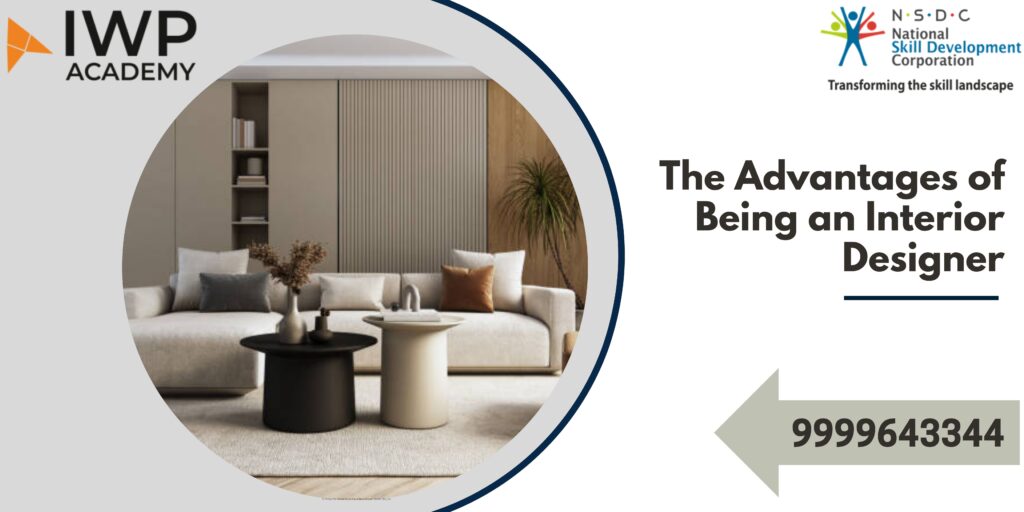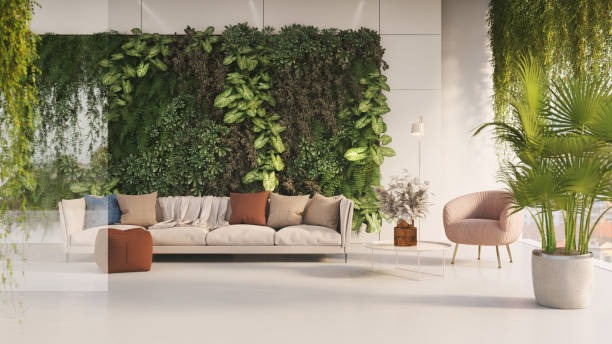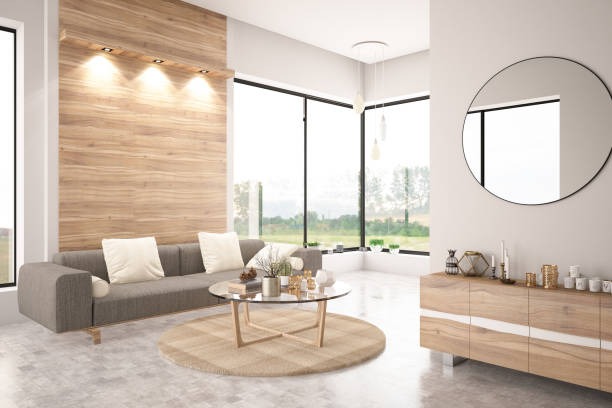Interior design is a dynamic and creative profession that involves the art and science of enhancing the interior spaces of buildings to create functional and aesthetically pleasing environments. If you have a passion for design, a keen eye for detail, and a desire to transform spaces, a career as an interior designer could be incredibly rewarding. In this blog, we’ll explore the many advantages of being an interior designer and why it’s a profession that continues to captivate individuals around the world.

Creative Expression
One of the most significant advantages of being an interior designer is the opportunity for creative expression. Interior designers have the freedom to infuse their personal style and artistic vision into every project. Whether you prefer modern, minimalist designs or eclectic, bohemian aesthetics, you can bring your unique ideas to life. This creative freedom allows for a constant sense of fulfillment and the opportunity to showcase your talent.
Variety of Projects
Interior designers work on a wide range of projects, from residential homes to commercial spaces like offices, restaurants, and retail stores. This diversity means that no two days are the same, and you’ll always encounter fresh challenges and opportunities. Each project has its unique requirements, allowing you to expand your skills and knowledge continually.
Impact on People’s Lives
Interior design isn’t just about creating beautiful spaces; it’s also about improving the quality of life for the people who inhabit them. A well-designed space can enhance comfort, functionality, and overall well-being. Whether you’re designing a cozy family home or a productive office environment, your work can positively impact the lives of those who use the space.
High Demand
The demand for skilled interior designers is consistently high. As people increasingly recognize the importance of well-designed spaces, the interior design industry continues to grow. This demand ensures a stable job market and ample opportunities for career advancement.
Flexibility
Interior designers often have the flexibility to work in various settings. Some may choose to work for design firms, while others opt for freelance or self-employment. This flexibility allows you to tailor your career to your preferences, whether you prefer collaborating with a team or running your own design studio.
Constant Learning
Interior design is a dynamic field that is constantly evolving. To stay relevant and competitive, designers must stay up-to-date with the latest trends, technologies, and materials. This commitment to lifelong learning keeps the profession exciting and ensures that you continue to grow both personally and professionally.
Building Relationships
As an interior designer, you’ll have the opportunity to work closely with clients, contractors, architects, and other industry professionals. Building strong relationships with clients and collaborators can lead to repeat business and referrals. These connections not only benefit your career but also provide a sense of fulfillment as you help bring your clients’ visions to life.
Financial Rewards
Interior designers often earn competitive salaries, especially as they gain experience and build their reputation. Additionally, you can increase your income by taking on larger projects or expanding your client base. This financial stability is a significant advantage of pursuing a career in interior design.
Conclusion
Being an interior designer offers a myriad of advantages, from creative fulfillment to financial rewards. It’s a profession that allows you to make a positive impact on people’s lives by creating functional and aesthetically pleasing spaces. With a constant demand for skilled professionals, a diverse range of projects, and the opportunity for lifelong learning, interior design is an attractive career choice for those with a passion for design and a desire to shape the world around them. So, if you’re considering a career change or are just starting out, the advantages of being an interior designer make it a path well worth exploring.
Learn Interior Designing with IWP Academy
FREQUENTLY ASKED QUESTIONS (FAQS)
Do I need to get certified to work as an interior designer?
While certification is not always mandatory, it can greatly enhance your credibility and job prospects. Many interior designers pursue certification from organizations like the National Council for Interior Design Qualification (NCIDQ) in the United States. Certification requirements vary by location, so it’s essential to research the specific requirements in your area.
Can I work as a freelance interior designer?
Yes, many interior designers choose to work as freelancers or start their own design firms. Freelancing allows you to have more control over your projects and work schedule. However, it also requires strong business acumen to handle client contracts, finances, and marketing.
What is the earning potential in the field of interior design?
Earnings in interior design can vary widely based on factors such as experience, location, and specialization. Entry-level designers may start with modest salaries, while experienced professionals and those with a strong portfolio can earn significantly more. Self-employed designers often earn income based on project fees and can have varying income levels.


